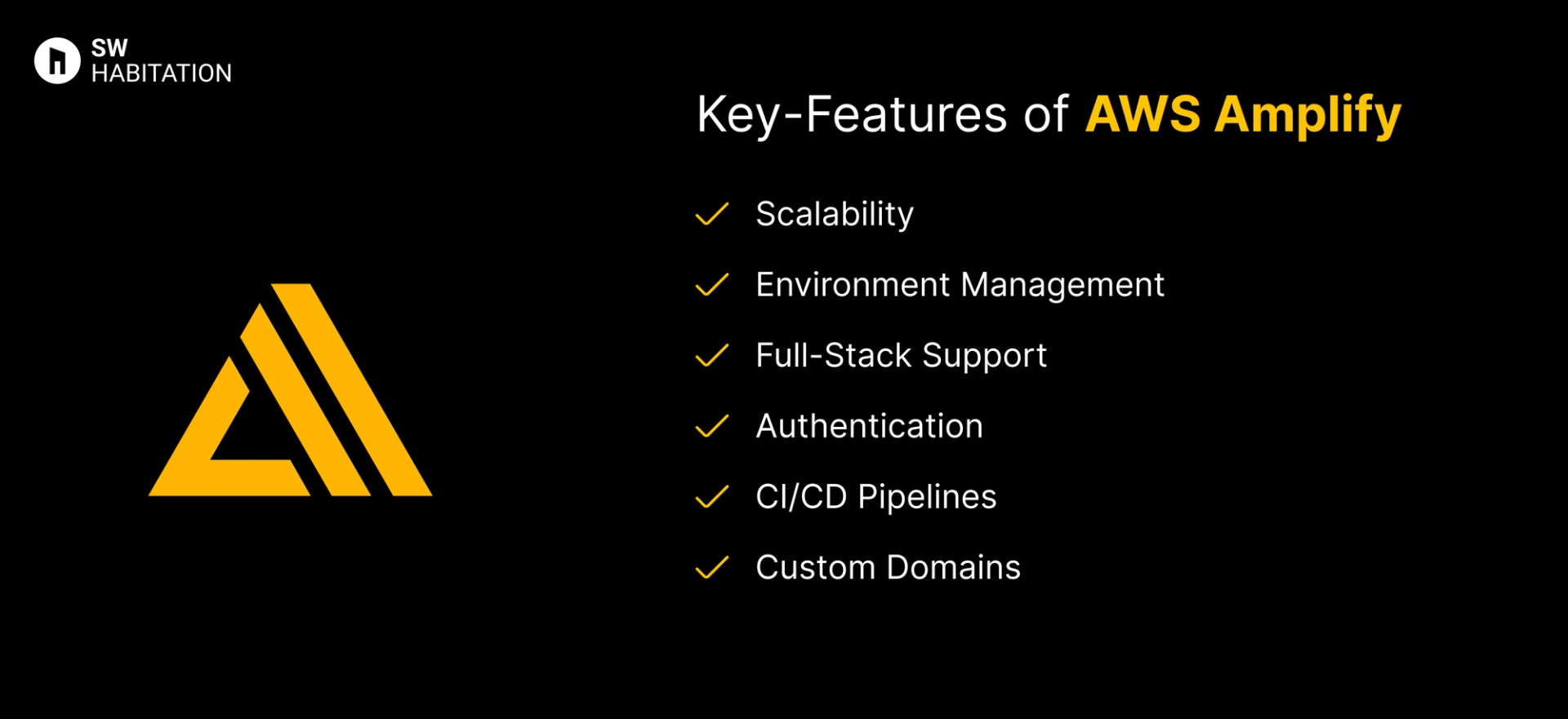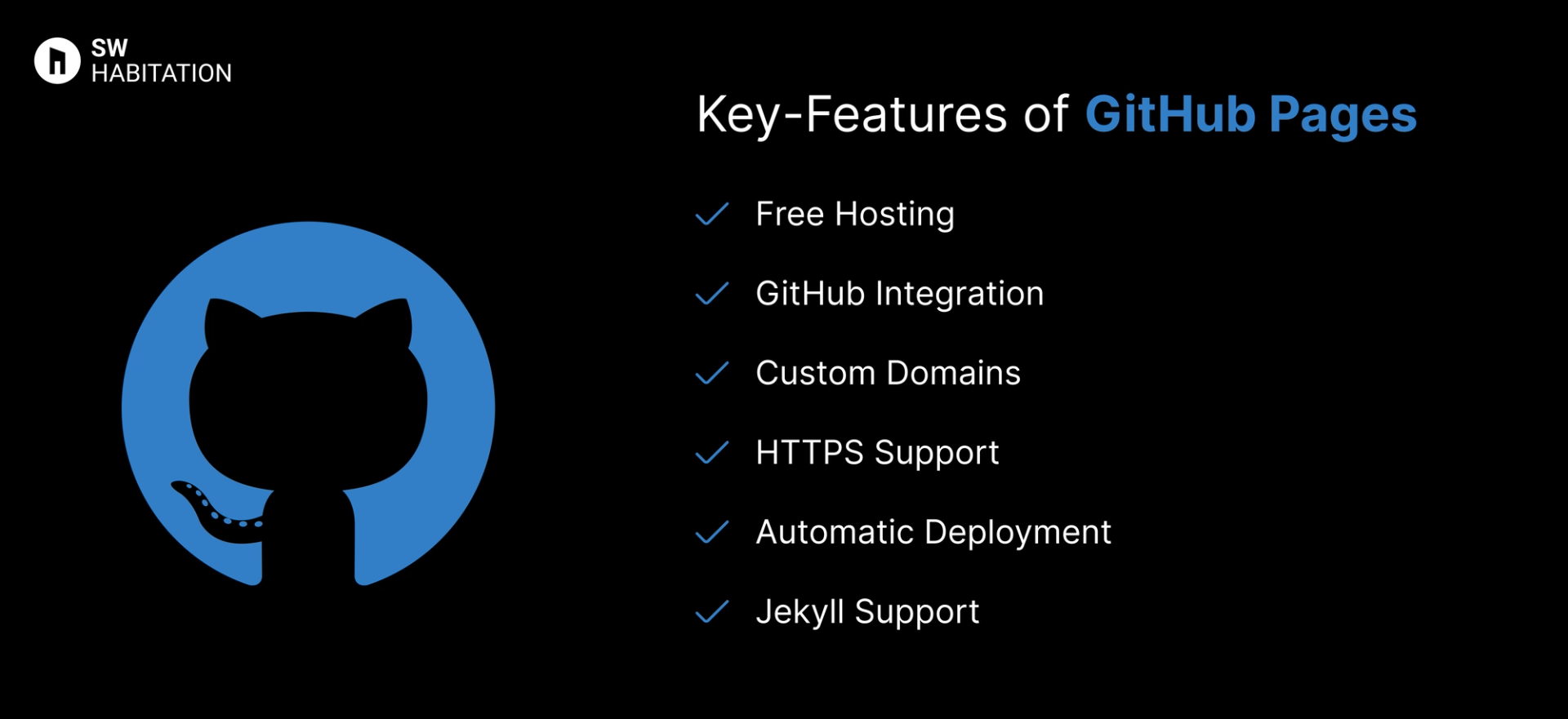AWS Amplify vs. GitHub Pages

AWS Amplify

GitHub Pages
You know when you’ve finished building your website and just want to get it online without dealing with all the techy stuff? That’s where deployment platforms help. They make it super easy to put your site live, just connect your code, click a button, and it’s up and running. No need to worry about servers or complicated setups.
They also take care of the important things like speed, security, and updates in the background. So while they handle the heavy stuff, you can focus on making your website look good and work great. It's simple, right?
What is AWS Amplify?
AWS Amplify is a deployment platform by Amazon Web Services that simplifies building and hosting full-stack applications. It provides tools to connect frontends to backends, manage app hosting, and scale effortlessly. Whether you’re working with static sites, dynamic apps, or serverless functions, Amplify has your back.
Key Features of AWS Amplify


- Scalability: Automatically scales with traffic, no manual intervention needed.
- Environment Management: Create separate environments for dev, staging, and production.
- Full-Stack Support: Deploy frontend and backend from a single platform.
- Authentication: Easy integration with Amazon Cognito for user management.
- CI/CD Pipelines: Automatic builds and deployments with every code push.
- Custom Domains: Connect your own domain with SSL certificates included.
Advantages of AWS Amplify
- Custom Domains and SSL: Free SSL and easy domain setup.
- Great for Serverless Apps: Perfect for serverless architectures.
- All-in-One Solution: Handles frontend, backend, and deployment seamlessly.
- CI/CD Out of the Box: Push code, and Amplify automatically builds and deploys.
- Integrated with AWS: Leverage the full power of AWS services like Lambda, S3, and DynamoDB.
Disadvantages of AWS Amplify
- Vendor Lock-In: Deep integration with AWS means it’s harder to migrate to other platforms later.
- Learning Curve: Familiarity with AWS services is helpful but can be overwhelming for beginners.
- Cost Complexity: Pricing can get confusing as your app scales and uses more AWS services.
What is GitHub Pages ?
GitHub Pages is a static site hosting service directly integrated with GitHub. It allows you to serve static content like HTML, CSS, and JavaScript straight from your GitHub repository. You can automatically deploy sites by pushing code to specific branches, making it a hassle-free option for developers of all levels.
Key Features of GitHub Pages


- Jekyll Support: Built-in support for Jekyll static site generator.
- Automatic Deployment: Push to the main branch, and your site is live.
- Free Hosting: No cost, no catch.
- Custom Domains: Use your own domain name.
- HTTPS Support: Free SSL certificates for secure browsing.
- GitHub Integration: Deploy directly from your repository.
Advantages of GitHub Pages
- Great for Open Source: Ideal for documentation and project showcases.
- Custom Domains: Easily configure your own domain.
- Easy Setup: Simple integration with GitHub repositories.
- Automatic Deployment: Deploy directly by pushing changes.
- Free of Charge: No hosting fees, ever.
Disadvantages of GitHub Pages
- No Built-in CI/CD: Limited automation compared to other platforms.
- Static Content Only: No server-side logic or databases.
- Repo Visibility: Free plans require public repositories.
- Limited Customization: Not as feature-rich as other platforms.
Comparison Between AWS Amplify vs GitHub Pages
Use Cases of AWS Amplify
- Enterprise Apps: Ideal for large-scale applications needing robust infrastructure.
- Rapid Prototyping: Quickly spin up apps with authentication, storage, and APIs.
- Full-Stack Applications: Manage both frontend and backend in one place.
- Serverless Applications: Leverage AWS Lambda and API Gateway.
Use Cases of GitHub Pages
- Project Documentation: Ideal for open-source project documentation.
- Learning Projects: Great for practicing web development and deployment.
- Blogs and Static Sites: Pair with static site generators like Jekyll or Hugo.
- Personal Projects and Portfolios: Quick, free hosting for personal websites.
Other Resources
Conclusion
Deployment platforms are a total game changer if you’re looking to launch your website quickly, reliably, and without any trouble. Whether it’s a personal portfolio, a startup site, or a growing business platform, they handle the technical heavy lifting like hosting, security, and scalability so you can stay focused on building great experiences for your users.
You’re not boxed into a single approach. Most platforms integrate smoothly with the tools and frameworks you already love, letting you deploy directly from your Git repository, preview updates, and roll back with ease. With lightning-fast performance and dependable uptime, deployment platforms simplify the path from code to production. Pick the one that aligns with your workflow, and you’re all set to launch with confidence 🚀
Frequently asked questions
Is AWS Amplify free?
It has a free tier, which is great for testing and small apps. Paid usage kicks in based on bandwidth, storage, and build time.
Is AWS Amplify good for static sites?
Amplify is great for static sites and JAMstack apps, and it includes global CDN hosting, caching, and atomic deployments.
Does AWS Amplify support CI/CD?
Yes, Amplify has built-in CI/CD, just connect your Git repo (GitHub, GitLab, Bitbucket), and it auto-deploys on every push.
What can I build with AWS Amplify?
You can build and deploy full-stack apps with frontends (React, Vue, Angular, etc.) and backends (APIs, databases, authentication) using AWS services.
Is GitHub Pages free to use?
Yes, It’s completely free for public repositories, with no hosting fees. You can also host private repositories with GitHub Pro or a paid plan.
What kind of sites can I host on GitHub Pages?
Only static sites like portfolios, blogs, documentation, or landing pages. It doesn’t support server-side code like PHP or Node.js.
Does GitHub Pages support HTTPS?
Yes, It automatically provides HTTPS support, even for custom domains via Let’s Encrypt.
